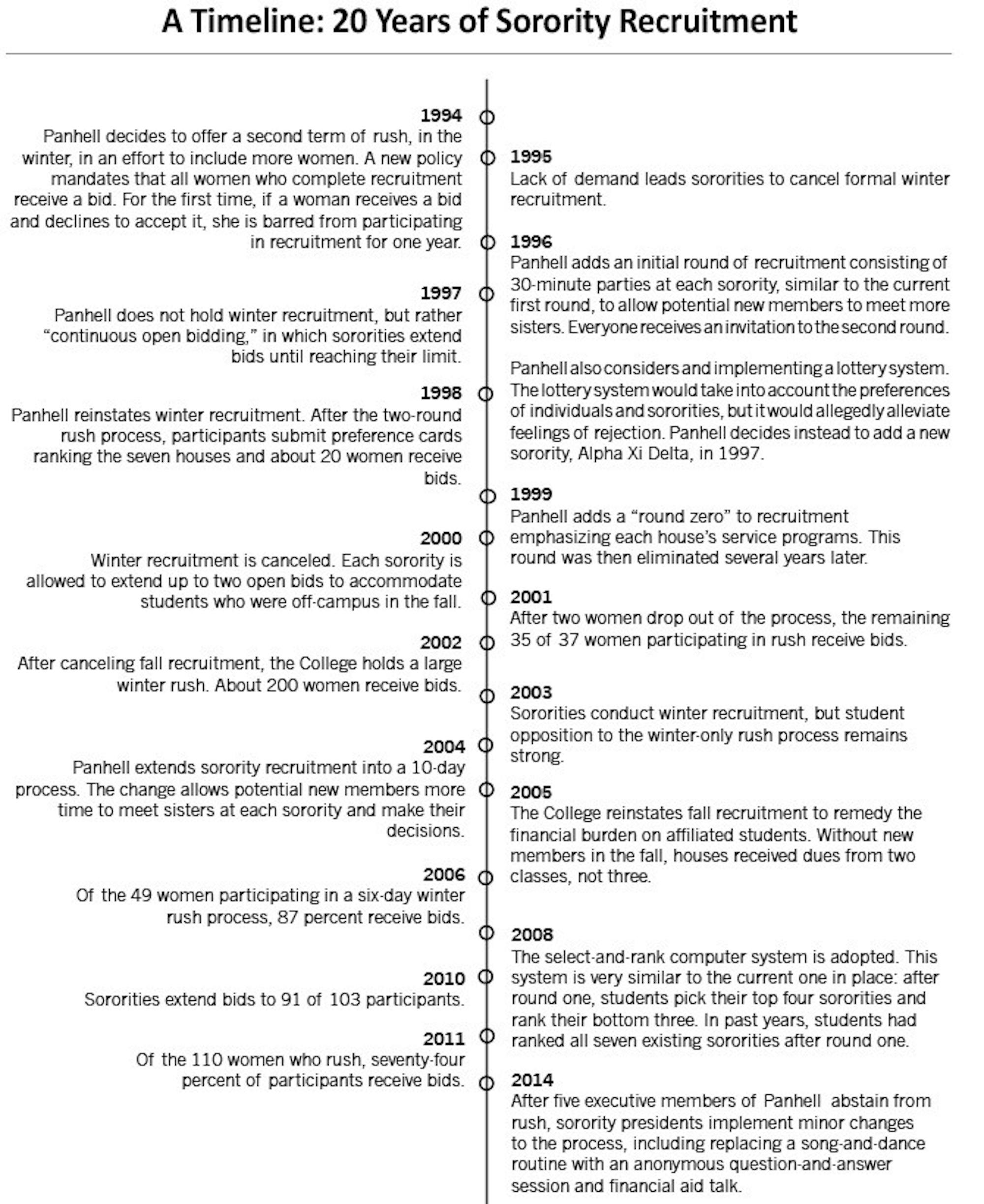Changes to this year’s winter sorority recruitment reflect minor shifts in a long, evolving history of rush processes at the College. This year, a talk on dues, philanthropy and financial aid, as well as an anonymous question-and-answer session, replaced song-and-dance routines.
Tweaks to this year’s process were prompted by a “call to action” email that five Panhellenic Council executives sent to campus on Jan. 9, explaining their decision to abstain from winter recruitment. The executives cited exclusivity by race, gender, sexual orientation and socioeconomic status as flaws in the recruitment system.Confusion stemming from the email’s wording led some students to believe that rush had been canceled.
“To the women who wanted to rush this quarter: We know our decision may feel unfair to you,” the email read. “However, we feel that enabling you to enter this unchanging cycle would be more unjust.”
While many students interviewed by The Dartmouth were surprised by the notion of eliminating this season’s sorority rush, cancelling winter recruitment is not unprecedented.In 1997 and 2000, Panhell voted not to hold winter rush, instead permitting sororities to extend a limited number of open bids. Both cancellations occurred because most sororities were nearly full from fall recruitment.
“Winter recruitment isn’t really a Dartmouth tradition,” former Panhell president Mariam Malik Alsikafi ’98 said at the time, calling it a large drain on sorority resources and members’ time. The smaller winter pledge classes, which in her time at the College usually comprised only two or three students, did not receive the attention that she believed new members deserve and resulted in higher drop out rates.
Historically, changes to recruitment have involved both chapter representatives and members of Panhell.
Panhell and the sororities worked very closely in 2008 when they implemented the select-and-rank computer system.
Panhell, sorority presidents and National Panhellenic Council representatives collaborated to change the recruitment process, said former Panhell vice president of recruitment Melissa Lokensgard ’09.
Most colleges overseen by National Panhellenic Council had used the system since the early 1990s, Lokensgard said. This prompted the switch.
In the previous system, potential new members had little say in which sorority they ultimately joined. Instead, each student would visit all of the houses for round one, then receive an invitation to round two from individual sororities. The computer system provides more of an equal opportunity, she said.
Winter recruitment’s popularity has increased significantly in the past two decades. In 1994, 36 women accepted bids during winter recruitment, whereas last winter the number reached 89.




